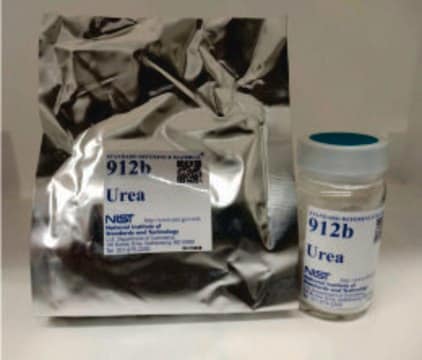All Photos(1)
About This Item
Linear Formula:
HOOCCOOH
CAS Number:
Molecular Weight:
90.03
MDL number:
UNSPSC Code:
12352106
PubChem Substance ID:
Recommended Products
form
liquid
availability
available only in Japan
concentration
0.05 M
1/10 N
density
1 g/cm3 at 20 °C
SMILES string
OC(=O)C(O)=O
InChI
1S/C2H2O4/c3-1(4)2(5)6/h(H,3,4)(H,5,6)
InChI key
MUBZPKHOEPUJKR-UHFFFAOYSA-N
Looking for similar products? Visit Product Comparison Guide
Storage Class Code
12 - Non Combustible Liquids
WGK
nwg
Flash Point(F)
Not applicable
Flash Point(C)
Not applicable
Certificates of Analysis (COA)
Search for Certificates of Analysis (COA) by entering the products Lot/Batch Number. Lot and Batch Numbers can be found on a product’s label following the words ‘Lot’ or ‘Batch’.
Already Own This Product?
Find documentation for the products that you have recently purchased in the Document Library.
Xianlai Zeng et al.
Journal of hazardous materials, 295, 112-118 (2015-04-22)
With the booming of consumer electronics (CE) and electric vehicle (EV), a large number of spent lithium-ion battery (LIBs) have been generated worldwide. Resource depletion and environmental concern driven from the sustainable industry of CE and EV have motivated spent
R Shapiro et al.
Transplantation, 72(3), 428-432 (2001-08-15)
The appropriate use of liver transplantation in children with type-1 primary hyperoxaluria (PH-1) is not well established. We reviewed our experience with 36 children with PH-1, including 12 who underwent liver transplantation. From 1989-1998, 36 children from 10 families in
Y Nakagawa et al.
The Journal of clinical investigation, 76(4), 1455-1462 (1985-10-01)
One reason that some people are prone to calcium oxalate nephrolithiasis is that they produce urine that is subnormal in its ability to inhibit the growth of calcium oxalate crystals. We have identified in human urine a glycoprotein (GCI) that
G M Gadd
Advances in microbial physiology, 41, 47-92 (1999-09-29)
The production of organic acids by fungi has profound implications for metal speciation, physiology and biogeochemical cycles. Biosynthesis of oxalic acid from glucose occurs by hydrolysis of oxaloacetate to oxalate and acetate catalysed by cytosolic oxaloacetase, whereas on citric acid
R de Water et al.
American journal of kidney diseases : the official journal of the National Kidney Foundation, 33(4), 761-771 (1999-04-09)
Urinary calcium oxalate (CaOx) crystals and crystal agglomerates are normally harmlessly excreted, but in nephrolithiasis they are retained by tubular epithelial cells and shifted into the renal interstitium. This crystalline material induces an inflammatory response consisting of an increase in
Our team of scientists has experience in all areas of research including Life Science, Material Science, Chemical Synthesis, Chromatography, Analytical and many others.
Contact Technical Service







